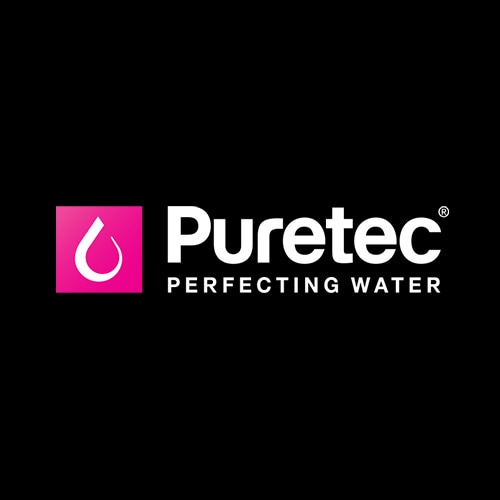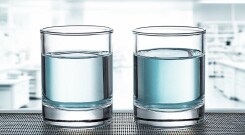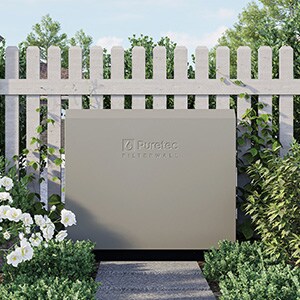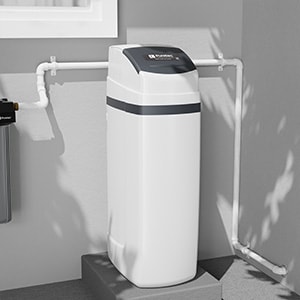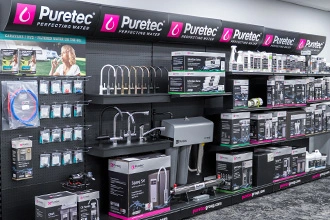Have you ever wondered why your hair feels different after a shower or why your dishes have those pesky white spots? The answer might lie in the hardness of your water. But what is hard water?, and what does the terms 'hard water' and 'soft water' mean? Read on to learn the differences and how your water can be impacting your daily life.
What is hard water?
Hard water is the measurement of minerals in the water, primarily calcium and magnesium1. How does hard water form? As water falls from the sky this is considered to be soft water, but as water hits the ground, flows through rocks and soil and sits in underground aquifers, it picks up these minerals and increases its' hardness. While these minerals are essential for human health in moderation, excessive volumes can cause issues for your home and skin.
The levels of hard water varies across Australia with areas of Queensland, South Australia, Western Australia and the majority of the Northern Territory generally considered to have 'very hard' water of over 181 mg/l (milligrams per litre). While New South Wales and the very top of the Northern Territory is noted to have 'moderately hard' water between 61 and 120 mg/l.
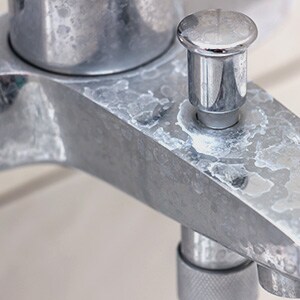
What are the effects of hard water?
It's very hard to tell if water is hard or soft just by simply looking at it, the most noticeable issue from hard water is scale buildup. When hard water is heated, through systems like hot water services and appliances, calcium deposits can form. If this builds up, it can greatly damage the performance and lifespan of your appliances such as your dishwasher, washing machine, coffee machine and kettle. Along with leaving the white deposit on glass elements such as the shower screen, glassware and dishes (which is commonly mistaken for soap build up!). This not only looks unsightly, but can be a pain to try and clean as it can return fairly quickly if not treated at the source.
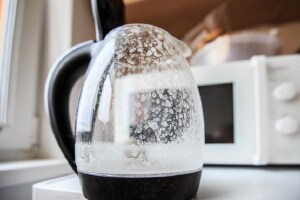
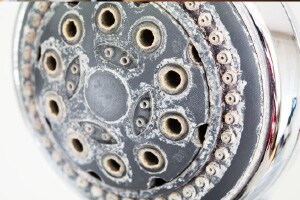
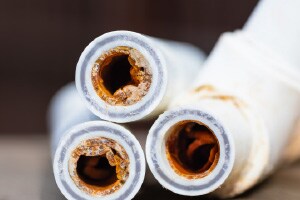
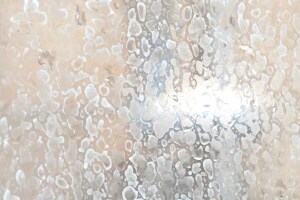
For our skin, the effects come from how hard water can interact with other chemicals. You may have heard of SLS, which is a foaming agent that many products such as shampoo, hand soap, body wash, facial cleanser, and bubble bath include in order to clean2. If you gain a good lather when using these products, your product probably has SLS in it.
When SLS is combined with water that has a high content of calcium and magnesium minerals, this can negatively affect the skin by leaving residue on the skin which can cause irritation. The Journal of Investigative Dermatology found that "The SLS residues caused skin irritation and skin barrier impairment, the extent of which was dependent on the hardness of the wash water and could be directly related to the level of SLS deposits on the skin."3
On an additional note regarding skin, we also know that inner hydration is crucial for youthful looking and feeling skin. Therefore it's uncomfortable to realise that simply not drinking enough water and being dehydrated on the inside, along with the impacts of hard water on the skin, can even affect the acceleration of ageing skin. Further contributing to premature wrinkles and a dull complexion. Which many of us spend excessive amounts of money on to try and 'stop' or reduce the signs of ageing.
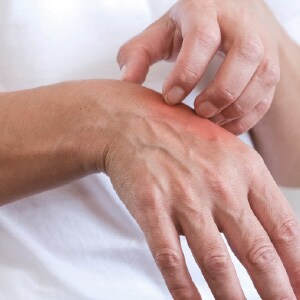
What is soft water?
Unlike hard water, the term 'soft water' means that typically water is mostly free of the harsh minerals that can damage your home and your body. Such as producing less scale build up and is gentler on skin and hair.
States such as Victoria and Tasmania are lucky enough to be blessed with soft water, with the general mineral count reading to be between 0 and 60 mg/l. It should be noted as well that soft water may have a higher concentration of sodium or salt.
How can you reduce hard water?
Understanding the difference between hard and soft water can help you identify potential issues in your home, how much impact they have to your daily life, and determine if water treatment is necessary.
Fortunately, Puretec offers a range of solutions to effectively treat hard water.
Firstly, scale control treatments can be installed to reduce the resilience of mineral buildup around your home and skin without entirely removing the minerals. This approach offers a balance between maintaining the water's natural composition and making it much easier on your home to minimise the scale formation. In this case we recommend theFilterWall F4orFilterWall F6, with the 'scaleprotect' cartridge.
Alternatively if you wish to remove* hardness, ourSOL Series water softenersremove* the calcium and magnesium minerals, resulting in soft water. It's important to note that these systems require regular maintenance and salt replenishment.
For a more comprehensive approach, by combining a SOL Series water softener, along with whole house filtration, this can provide optimal results to not only ensure softer water, but also enjoy filtered water for the whole house to remove* other contaminants such as chlorine, sediment and bacteria.
Disclaimer: *Removes' indicates significant reduction, not necessarily 100% removal.
Resources
• "Hard Water vs. Soft Water: Which One Is Healthier?" 30 July 2019,https://www.healthline.com/health/hard-water-and-soft-water#Whats-the-difference-between-hard-water-and-soft-water. Accessed 5 August 2024.
Why choose Puretec systems?
For over 30 years, Puretec has been providing exceptional water purification solutions across Australia and New Zealand. You can trust that you're getting top-quality water filtration solutions tailored to your needs. As trusted experts in water filtration, we offer world-class solutions that embody our commitment to 'Perfecting Water'. Explore our range of reverse osmosis systems and experience the health benefits of pure, clean water.
